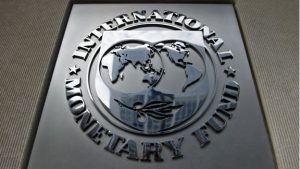With Nigeria’s fuel subsidy payout averaging N500 billion monthly, total expenditure on subsidy could hit a record N6 trillion mark by year-end, the International Monetary Fund (IMF) cautioned yesterday.
The multilateral lender also revealed that a macro-fiscal stress test it conducted on the country showed that interest payments on debts in the country could amount to Nigeria using 100 per cent of its revenue to service debts by 2026 if not closely monitored.
IMF’s Resident Representative for Nigeria, Mr. Ari Aisen made these disclosures while presenting the latest Sub-Saharan Africa Regional Economic Outlook, in Abuja.
He also revealed that Nigeria received a total of $6.8 billion facilities from the IMF following the outbreak of the COVID-19 pandemic in 2020.
According to him, Nigeria received $3.4 billion in Special Drawing Rights (SDR) and as well as a loan in the same amount.
The IMF chief expressed worry that many African countries, including Nigeria risk sliding into critical debt servicing problem unless urgent actions were explored to significantly raise revenue.

Aisen noted that over 80 per cent of the Federal Government’s revenue was committed to debt service, a situation he described as an “existential problem”
“It is a reflection of low revenue. It is an existential issue for Nigeria. It is essential for macro-economic stability. It is important for the provision for social service,” he said.
Further x-raying the fiscal challenges, he regretted that as an oil exporter, Nigeria was not only unable to take advantage of the current global high oil prices to build reserves, but also confronted by low earnings due to the subsidy on petroleum products.
With N500 billion monthly fuel subsidy payouts, he noted that the country might end up with a record N6 trillion subsidy at by year-end.
However, he raised optimism that the Dangote Refinery would reduce fuel importation when completed, thereby cutting down the subsidy burden.


